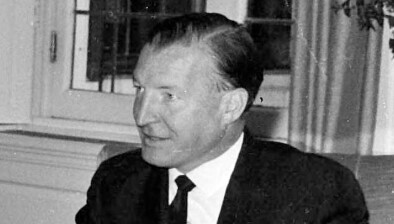Supreme Court: Legislation excluding father-of-three from widower’s contributory pension scheme unconstitutional

The Supreme Court has quashed a decision of the Minister for Social Protection to refuse to grant a widower’s contributory pension to a widowed father of three children and has declared s.124 of the Social Welfare Consolidation Act 2005 (as amended) unconstitutional in respect of its exclusion of a widowed parent from the pension scheme.

About this case:
- Citation:[2024] IESC 1
- Judgment:
- Court:Supreme Court
- Judge:Mr Justice Donal O'Donnell
Delivering judgment for the Supreme Court, Chief Justice Donal O’Donnell observed that “the payment is a social welfare benefit payable in the event of the occurrence of an event giving rise to a recognised need for support” and “cannot be easily characterised as a consequence of a status deliberately chosen”.
He continued: “In general, it is notable that social welfare provisions, unlike succession or taxation rules, do not tend to distinguish between married couples and cohabitants. In the case of s. 124, bereavement and the impact of the death of a partner, both emotional and financial, is not in any way different whether the survivor is married or not.”
Background
The first appellant, Mr O’Meara, along with his three children, brought proceedings challenging the first respondent’s refusal to grant him a widow’s, widower’s or surviving civil partner’s (contributory) pension.
Mr O’Meara was not married to the children’s mother, Ms Batey, due to her negative experience with the breakdown of her parents’ marital relationship. Although the couple had contemplated marriage following Ms Batey’s breast cancer diagnosis, she contracted Covid-19 and died in 2021 before any arrangements were made.
Mr O’Meara subsequently applied for the pension which is payable pursuant to Chapter 18 of Part 2 of the Social Welfare Consolidation Act 2005 (as amended) to surviving spouses or civil partners where sufficient PRSI contributions have been made by either spouse or civil partner. S.124(1) of the 2005 Act confines the pension to widows, widowers, divorced persons and civil partners. Mr O’Meara’s application was refused as he did not meet those definitions.
Having been refused relief by Mr Justice Mark Heslin in the High Court on the basis of the special position of the married family under Article 41 of the Constitution, the appellants secured a leapfrog appeal to the Supreme Court challenging the validity of s.124 on the basis that it infringed their equality rights under the Constitution and under the European Convention on Human Rights.
The Supreme Court
The court noted the appellants’ argument that the ‘family statement’ in The State (Nicolaou) v. An Bord Uchtála [1966] I.R. 567, which prescribes the Article 41 ‘family’ as being limited to a family “founded on the institution of marriage”, should be overruled on the basis that Article 41 was always meant to include non-marital families.
Finding Nicolaou to be an “unnecessary detour” from the fundamental issue of equality, the court examined s.124 in light of the test at paragraph 192 of Donnelly v. Ireland [2022] IESC 31, [2022] 2 I.L.R.M. 185, that “the challenge can only succeed if the legislative exclusion is grounded upon some constitutionally illegitimate consideration, and thus draws an irrational distinction resulting in some people being treated as inferior for no justifiable reason. The Constitution does not permit the court to determine that the plaintiff should be included simply because a more inclusive policy, assimilating more people sharing some relevant characteristic into the class, would be ‘fairer’.”
The court concluded that “insomuch as the section permits payment of WCP to be made to a surviving spouse with dependent children, but refuses any such payment to a surviving partner of a non-marital relationship with dependent children, the section makes a distinction that is arbitrary and capricious and which is not reasonably capable when objectively viewed in the light of the social function involved of supporting the precise classification challenged and therefore fails to hold them as parents, equal before the law”.
Believing himself obliged to consider the appellants’ arguments in respect of their infringement of their Convention rights, and in particular their equality rights under Article 14, the Chief Justice declined to declare s.124 as incompatible with the Convention, reserving that issue to a case in which it becomes necessary to decide it.
Returning to the Nicolaou argument, the Chief Justice outlined numerous reasons why the family statement should not be overruled, finding that it has “at least a strong claim to be the correct interpretation of the Constitution, says what it has been understood to say, and what it has repeatedly been held to mean, and cannot at a minimum, be said to be clearly wrong”.
Considering it unnecessary to overrule Nicolaou in order to decide the matter before it, the court noted that the family statement “has in turn become embedded in the statutory and constitutional law of the State, to the point where it cannot, in my view, be removed by judicial decision without consequences that cannot necessarily be foreseen or controlled by any such decision”.
Having examined Articles 41 and 42 of the Constitution, the history against which they were drafted and the wide body of Irish jurisprudence supporting the ‘family statement’, the Chief Justice disagreed with Mr Justice Seamus Woulfe and Mr Justice Gerard Hogan, refusing to accept the propositions that the interpretation of the family under Article 41 of the Constitution as the marital family in Nicolaou is incorrect, that the Constitution does not envisage distinguishing couples by marital status and that any provision so distinguishing is per se unconstitutional.
The Chief Justice opined: “If it was seriously being suggested in 1937 that the Family should extend beyond the family based on marriage then it is surely inconceivable that this would not have been stated expressly… It does not, however, require any particular appreciation of the society which existed, or the social thinking which prevailed in 1937, to accept that the natural understanding of this text, is that the Family referred to in Article 41 is the family based on marriage.”
Diverting his focus to whether Article 41 should be interpreted in light of Article 42A, the Chief Justice noted that Article 42A “sought to put beyond doubt in the text of the Constitution what had been said in the case law — that the rights of children were the same irrespective of the marital status of their parents”.
Finding it clear that Article 42A did not alter the interpretation of Article 41, the Chief Justice considered that the exclusive concept of the family in Article 41 was not “attractive or admirable or one that is well suited to a contemporary society” but that “it is for the People to choose in what way that provision should be altered”.
The court pointed out: “There may be good reasons to debate what the Constitution should now say, and indeed the Court was informed by the Attorney General in the course of argument, that proposals to amend Article 41 in this regard were under consideration, and proposals are before the Oireachtas as of the date of delivery of this judgment. But, the forum for any debate on what the Constitution should say in this or any other regard is not the Court.”
Conclusion
Accordingly, Chief Justice O’Donnell made a declaration that s.124 of the 2005 Act is unconstitutional insofar as it does not extend to Mr O’Meara as a parent of three children, and made an order of certiorari quashing the first respondent’s decision refusing Mr O’Meara the pension.
The court concluded: “It remains a matter for the Oireachtas to consider how best to make provision for benefit consistent with the provisions of Article 40.1 of the Constitution.”
John O’Meara & Ors v The Minister for Social Protection, Ireland and the Attorney General [2024] IESC 1










